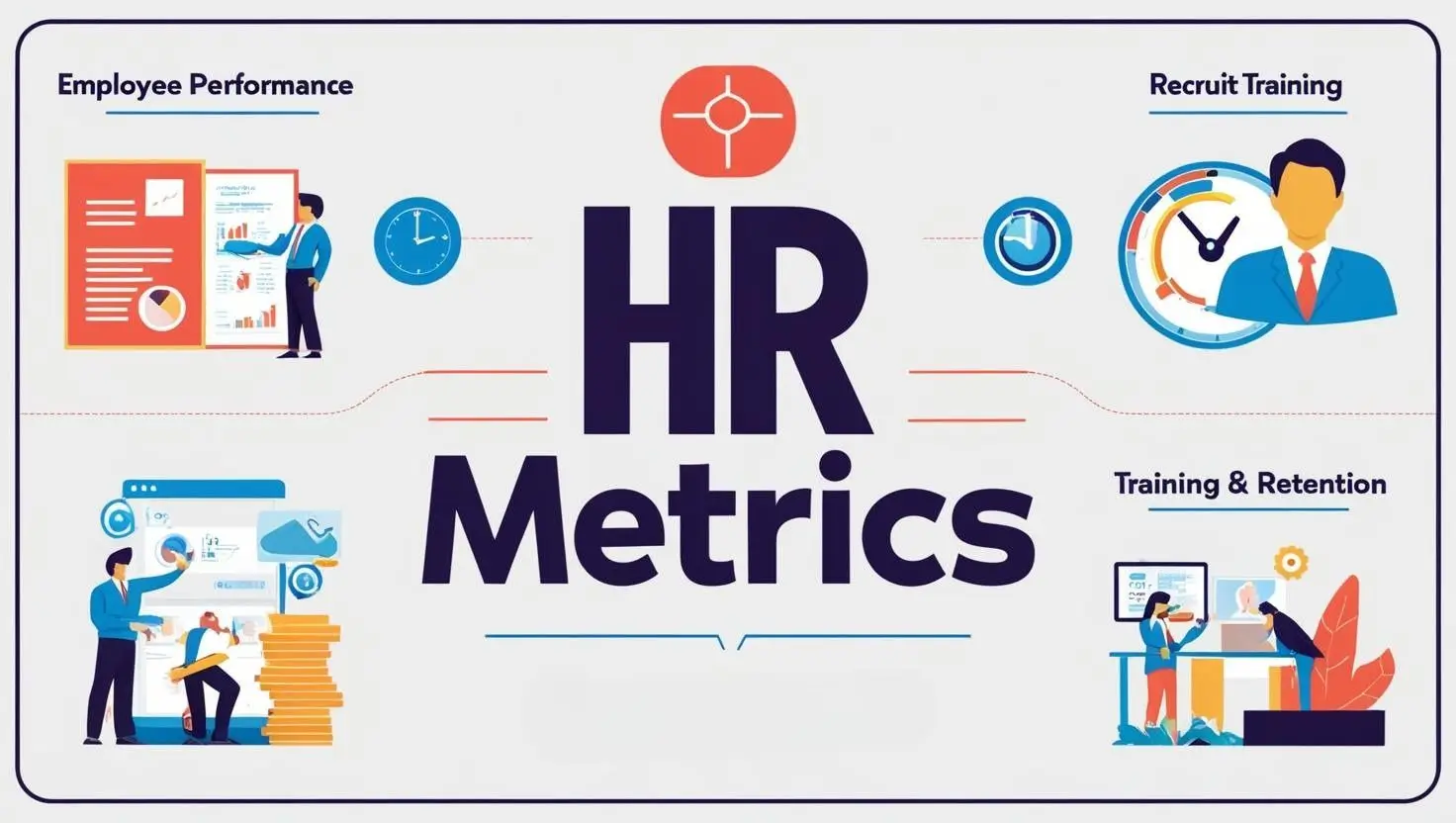Best Time Tracking Software for 2026
Last updated: February 2026
Time tracking software simplifies and automates the process of monitoring employee hours, managing projects, and complying with labor regulations. By adopting these solutions, organizations can reduce administrative burdens, prevent time theft, and foster a culture of accountability and transparency. Embracing time tracking technology not only streamlines operations but also contributes to a more engaged and productive workforce.
- Advanced analytics to track KPIs & impact
- Automates onboarding, payroll & reporting
- Designed to support fast-growing companies
- Real-time employee tracking
- Business operations one stop-shop
- Quick task management
- Software designed for the unique needs of your business
- Seamless integration with payroll
- 24/7 customer support
- Award-winning payroll & HR Software
- Run payroll in a few clicks
- Payroll on Autopilot®
- Built for all businesses small to large
- Automate tax registration
- Hire and onboard remote employees
- All-in-one payroll software
- Over 130+ seamless app integrations
- 24/7 Award-winning support
- 2022 Best SMB-Focused Solution Winner
- 24/7 U.S. based customer support
- Flexible and automated small business payroll
Why You Can Trust the Expertise of Sonary
At Sonary, we are committed to providing accurate and trustworthy information to help you make informed decisions. Our research process is meticulous, transparent, and guided by a dedication to maintaining the highest standards of integrity, ensuring accurate, real-world insights.
Read more here
Unlike many other review platforms, we conduct in-depth evaluations of the software and services we feature. Our expert team tests and actively uses the tools we review to understand their features, performance, and value comprehensively. Our assessments are based on real-world use, giving you insights beyond surface-level descriptions. Our research methodology includes analyzing key consumer factors such as pricing, functionality, device usability, scalability, customer support quality, and unique industry-specific features. This hands-on approach and dedication to transparency mean you can trust Sonary to deliver regular, up-to-date content and recommendations that are well-researched and genuinely helpful for your business needs.What Is Time Tracking Software?
Time tracking software is a tool designed to help individuals and businesses monitor the time spent on tasks, projects, or activities. It allows users to record the start and end times of specific tasks, providing detailed insights into how time is allocated throughout the day. This software is commonly used by freelancers, remote teams, and businesses of all sizes to improve productivity, manage workloads, and ensure accurate billing.
Benefits of Time Tracking Software
Enhanced Productivity
Time tracking software provides valuable insights into how employees allocate their time across various tasks and projects. This visibility enables you to identify opportunities for improving efficiency and optimizing workflows. By understanding where time is spent, you can reallocate resources to high-priority activities, eliminate bottlenecks, and enhance overall productivity. Employees also benefit by gaining awareness of their work patterns, allowing them to self-manage and prioritize effectively.
Accurate Payroll Processing
Automating timekeeping eliminates the errors and inefficiencies associated with manual timesheets. Time tracking software ensures that all employee hours are accurately recorded, simplifying payroll calculations and reducing the risk of discrepancies. This precision is especially important for calculating overtime, managing shift differentials, and ensuring compliance with labor laws. Integrating time tracking data with payroll systems further streamlines the process, saving time and reducing administrative overhead.
Improved Project Management
Effective project management relies on accurate tracking of time and resources. Time tracking software allows you to monitor the progress of projects in real-time, providing insights into how time is allocated among different tasks and team members. This information helps in managing budgets, forecasting project timelines, and making informed decisions to keep projects on schedule. Additionally, precise time records facilitate transparent client billing and enhance customer satisfaction.
Compliance and Legal Protection
Maintaining accurate time records is crucial for complying with labor regulations and protecting your organization from legal disputes. Time tracking software ensures that you have detailed records of employee hours, breaks, and overtime, which are essential for audits and compliance checks. By adhering to labor laws and industry-specific regulations, you minimize the risk of penalties and demonstrate your commitment to fair labor practices.
Employee Accountability and Transparency
Implementing time-tracking software fosters a culture of accountability by providing clear expectations and measurable outcomes. Employees can track their own time, gain insights into their productivity, and identify areas for improvement. Transparent time tracking builds trust between employees and management, as it ensures that everyone is held to the same standards. This openness can lead to increased morale, better performance, and a more collaborative work environment.
![]()
Key Features to Look For
When selecting time tracking software, it’s important to consider features that align with your organization’s needs. Here are some essential aspects to evaluate:
User-Friendly Interface
A straightforward and intuitive interface ensures that both administrators and employees can navigate the software with ease. Quick time entry methods, such as one-click timers or simple clock-in/out functions, reduce friction and encourage consistent use. Mobile accessibility is also vital, allowing users to track time on-the-go through smartphones or tablets.
Customizable Reporting
Robust reporting capabilities enable you to generate detailed insights tailored to your specific metrics. Look for software that offers flexible reporting options, real-time analytics, and the ability to export data in various formats. This functionality supports informed decision-making and helps you monitor key performance indicators effectively.
Integration Capabilities
Seamless integration with existing systems enhances efficiency and data accuracy. Ensure that the time tracking software can connect with your payroll systems, project management tools, and HR information systems (HRIS). Integrations reduce manual data entry, minimize errors, and create a unified workflow across platforms.
Compliance Management
Time tracking Tools should support compliance with labor laws and industry regulations. Features such as configurable labor law settings, automated alerts for potential violations, and secure audit trails are essential. This ensures that your organization adheres to legal requirements and can confidently address any compliance inquiries.
Security and Data Protection
Protecting sensitive employee data is paramount. Choose software that offers robust security measures, including data encryption, regular backups, and role-based access controls. This safeguards information against unauthorized access and data breaches, maintaining trust with your employees.
Employee Self-Service Portal
An employee-centric approach enhances engagement and autonomy. A self-service portal allows employees to view their time records, schedules, and leave balances. They can submit time-off requests, receive notifications, and manage their own time tracking, contributing to a more empowered workforce.
Scalability and Customization
Select a solution that can grow with your organization. Scalable software accommodates an increasing number of users and expanding feature requirements. Customizable options, such as adding specific data fields or adjusting workflows, ensure that the software remains aligned with your evolving needs.
![]()
How To Choose Time Tracking Software
Choosing the right time-tracking software can significantly improve productivity, accuracy in billing, and overall project management. Here are the key factors to consider when selecting a time tracking solution that best fits your needs:
1. Identify Your Goals and Needs
- Project Management: If you need to track time across multiple tasks and projects, choose a tool that supports project and task-level tracking, allowing you to see how much time is spent on each component.
- Billing and Invoicing: For freelancers or businesses billing clients by the hour, look for software with built-in invoicing or integration with billing systems for seamless tracking and payments.
- Employee Monitoring: If team accountability is a priority, consider software with features like productivity tracking, screenshots, or idle detection.
2. Ease of Use
- User-Friendly Interface: Choose software with a simple, intuitive design that is easy for all team members to adopt. A cluttered or complex tool can reduce productivity instead of boosting it.
- Mobile and Desktop Versions: If your team works in multiple environments, opt for software with apps for both mobile and desktop to allow easy tracking on the go.
3. Key Features to Look For
- Automated Time Tracking: Automatic tracking features, like start/stop timers or idle detection, ensure that time is accurately recorded without relying on manual input.
- Detailed Reporting and Analytics: Reports help you analyze time usage, productivity trends, and project costs, so look for customizable reports that offer insights relevant to your needs.
- Integrations: Choose a tool that integrates with other software you use regularly, such as project management tools (like Asana or Trello), accounting software, or calendar apps.
- Budget and Cost Tracking: For projects with financial constraints, look for software that lets you set budgets and track costs in real time.
4. Scalability and Team Features
- Collaboration Options: If you’re managing a team, choose software that allows team members to collaborate, assign tasks, and share progress updates.
- Permissions and Roles: Look for software that lets you assign different roles or permissions to control access and enhance security, especially in larger teams.
- Scalability: As your business grows, you’ll need a tool to scale. Ensure the software can accommodate additional users or advanced features if needed.
5. Data Security and Privacy
- Data Encryption: Ensure the software encrypts data to secure employee and client information.
- Compliance: If you’re working with sensitive information or data from multiple regions, choose software that complies with relevant data privacy laws (like GDPR).
6. Pricing and Trial Period
- Free Trials and Demos: Many time tracking tools offer a free trial period, so take advantage of this to test the software’s features and usability.
- Transparent Pricing: Look for software with a clear pricing model that aligns with your budget. Some tools charge per user, while others have a flat monthly fee.
- Additional Costs: Consider if you’ll need to pay extra for features like additional integrations, advanced reports, or larger storage capacities.
7. Customer Support and Reviews
- Reliable Customer Support: Choose software with responsive customer support available via chat, email, or phone to address any technical issues quickly.
- User Reviews and Ratings: Read reviews from other users to gauge the tool’s reliability, ease of use, and overall customer satisfaction.
Best Practices for Implementing Time Tracking Tools
To maximize the benefits of time tracking software, consider the following best practices:
Involve Stakeholders Early
Engage managers, employees, and IT staff during the selection and implementation process. Gathering input from various stakeholders ensures that the software meets the needs of all users and promotes buy-in across the organization. Clear communication about objectives and expectations sets the stage for a successful rollout.
Choose the Best Solution
Assess your organization’s specific requirements and evaluate software options accordingly. Consider factors such as ease of use, feature set, scalability, and vendor support. A well-chosen solution aligns with your goals and provides long-term value.
Communicate with Employees
Transparency is key to gaining employee acceptance. Clearly explain the purpose of the time tracking software, emphasizing how it benefits both the organization and the individual. Provide comprehensive training and address any concerns about privacy or data usage. Open communication fosters trust and encourages adoption.
Customize for Your Organization
Tailor the software settings to reflect your company’s policies and procedures. Configure features such as overtime rules, break periods, and approval workflows to ensure consistency and compliance. Customization enhances the relevance of the software and streamlines operations.
Monitor and Optimize
Regularly review time tracking data to identify trends, opportunities for improvement, and potential issues. Solicit feedback from employees to understand their experiences and gather suggestions. Continuous optimization ensures that the software remains effective and contributes positively to your organizational objectives.
Use Cases Across Industries
Time tracking software offers versatile applications across various sectors:
Professional Services
In law firms, consultancies, and accounting practices, tracking billable hours is essential. Time tracking software provides precise records for client billing, project management, and profitability analysis. It enhances transparency with clients and supports accurate invoicing.
Manufacturing and Construction
Managing shifts and monitoring project timelines are critical in these industries. Time tracking software helps schedule employees effectively, track time spent on specific tasks, and manage labor costs. It contributes to timely project completion and efficient resource utilization.
Healthcare
Compliance with labor laws and ensuring adequate staffing are vital in healthcare settings. Time tracking software assists in managing complex schedules, tracking overtime, and maintaining compliance with regulations related to working hours and rest periods. It supports the delivery of high-quality patient care.
Remote and Freelance Work
For remote teams and freelancers, time tracking software enables accurate monitoring of work hours and task completion. It facilitates communication with clients, supports transparent billing, and helps manage workloads effectively, regardless of location.
Retail and Hospitality
In industries with variable staffing needs, time tracking software aids in workforce management by scheduling employees across different shifts and locations. It helps control labor costs by monitoring overtime and ensures that staffing levels meet customer demand.
Overcoming Common Challenges
While implementing time tracking software offers significant benefits, it’s important to address potential challenges proactively:
Employee Resistance
Some employees may be hesitant about adopting new time tracking methods due to concerns about micromanagement or privacy. To overcome this, communicate openly about the reasons for implementation, highlighting the benefits such as accurate pay and recognition of hard work. Involving employees in the process and providing adequate training can alleviate concerns and promote acceptance.
Ensuring Data Accuracy
Accurate data is crucial for effective time tracking. Encourage consistent use of the software by simplifying time entry processes and providing user-friendly tools. Regular audits and feedback mechanisms can help identify and correct discrepancies promptly.
Navigating Compliance Complexity
Adhering to diverse labor laws and regulations can be complex. Leverage the software’s compliance features by configuring settings to align with legal requirements. Consult legal experts if necessary to ensure that all regulations are correctly addressed within the system.
Future Trends in Time Tracking
The evolution of time tracking technology continues to offer new opportunities for enhancing HR operations:
Artificial Intelligence and Automation
AI-powered time tracking solutions can predict staffing needs, automate scheduling, and detect anomalies in time entries. This intelligence enables more proactive management of resources and enhances decision-making capabilities.
Biometric Integration
Incorporating biometric technologies, such as fingerprint or facial recognition, enhances security and accuracy. It eliminates practices like “buddy punching” and ensures that time records reflect actual employee presence.
Advanced Analytics
Enhanced analytics provide deeper insights into workforce dynamics. Customizable dashboards and real-time reporting enable HR professionals to monitor trends, assess performance, and make data-driven decisions that support organizational growth.
Conclusion
Time tracking software stands as a powerful ally for HR professionals seeking to elevate efficiency, ensure compliance, and foster a productive workplace. By embracing these tools, you unlock the potential to streamline operations, enhance transparency, and support your organization’s strategic goals. The positive impact extends beyond administrative efficiencies, contributing to a culture of accountability and continuous improvement.
Selecting the right time tracking software involves careful consideration of your organization’s unique needs and a commitment to best practices in implementation. By focusing on user-friendly features, robust integration capabilities, and proactive communication, you set the stage for a successful transition that benefits both employees and management.
Embrace the future of time management with confidence, knowing that the right tools and strategies will empower your HR operations and contribute to your organization’s ongoing success.











